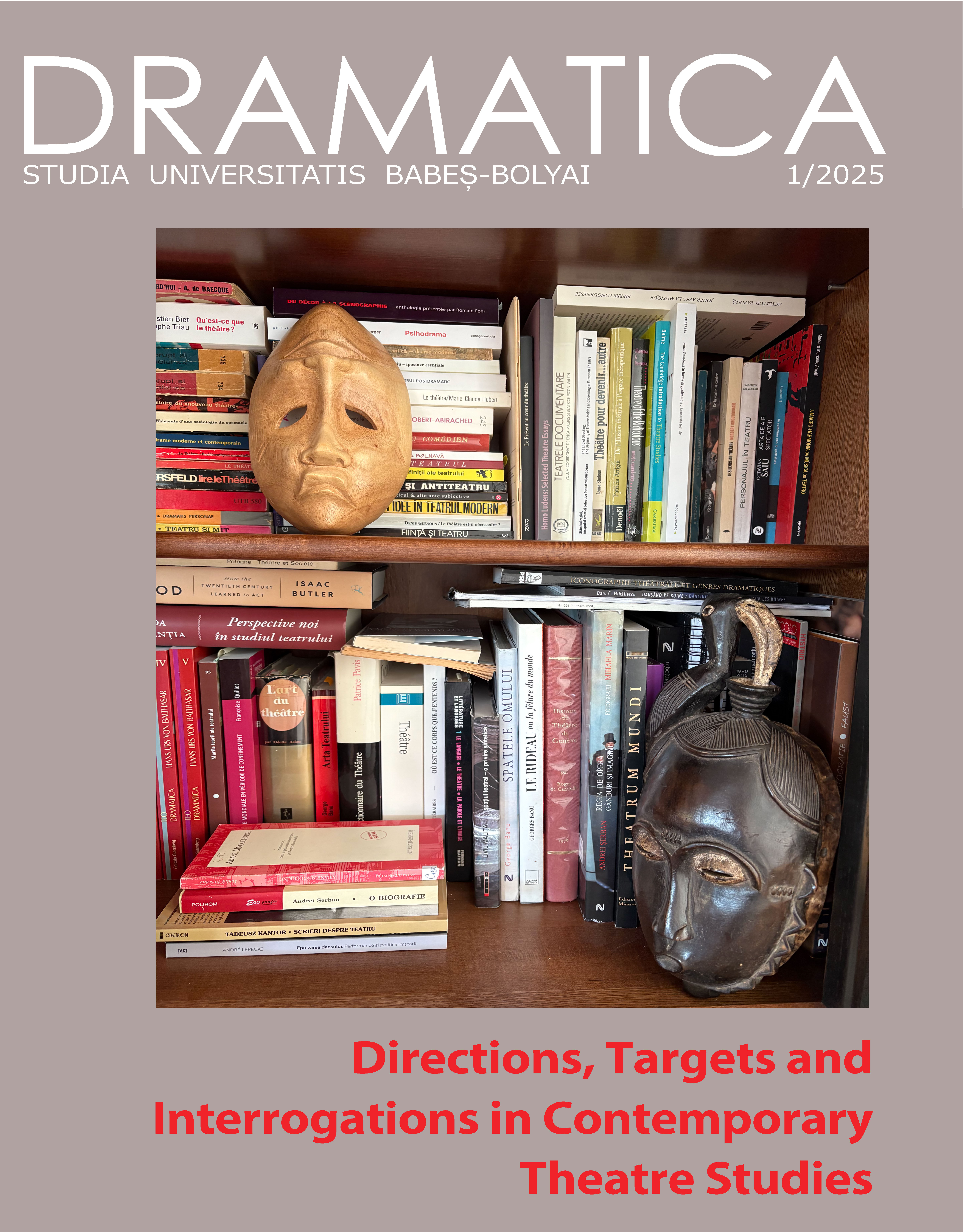The Inflated, Absurd World of a Liberating Dream. Eugène Ionesco, Pietonul aerului (The Air Walker), by Gábor Tompa, “Lucian Blaga” National Theatre, Cluj-Napoca, premiere: May 30, 2024
Abstract
Eugène Ionesco confessed that he perceived the world as being emptied of meaning, and reality, most of the time, as unreal. The feeling of unreality was expressed through his characters, who wander, tormented by anxieties, failures, regrets, and the emptiness of their lives, or are depicted as lost beings in the meaninglessness of existence. His plays are a blend of fantasy, poetry, and nightmare on the one hand, and social and cultural critique on the other. They contain the turmoil of someone who realizes that life is hellish, and yet loves it with all its hellishness. A being that wants to be free, in a world that resembles a prison from which it cannot escape. Ionesco and his characters appear to be stunned by the absurdity of the universe, by the individual’s inability to know and understand. They experience the revelation of Death, of Evil, and of an inadmissible existential condition. The identities of his characters are not clearly defined; they melt into others, change ages and roles, and evolve in an uncertain space and time, reproducing the vagueness of memories from a dream. In a dream, another kind of reality appears, in which the characters try to integrate by accepting conventions; the images become incoherent, overlapping, shifting from one plane to another. In the theatre of the absurd, the dreamlike follows its own laws, like in a game of mirrors, where characters have the freedom to act, in a constant state of mobility and transformation, where the irrational takes control.
Downloads
Published
How to Cite
Issue
Section
License
Copyright (c) 2025 Studia Universitatis Babeș-Bolyai Dramatica

This work is licensed under a Creative Commons Attribution-NonCommercial-NoDerivatives 4.0 International License.


